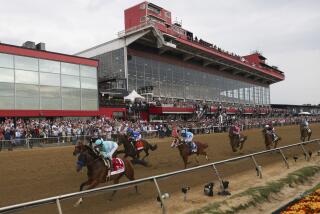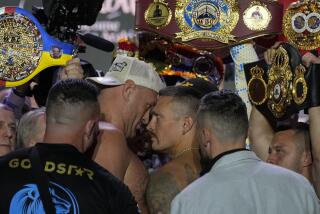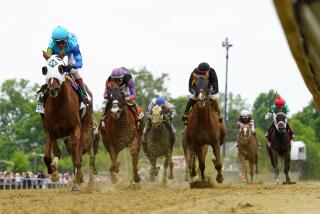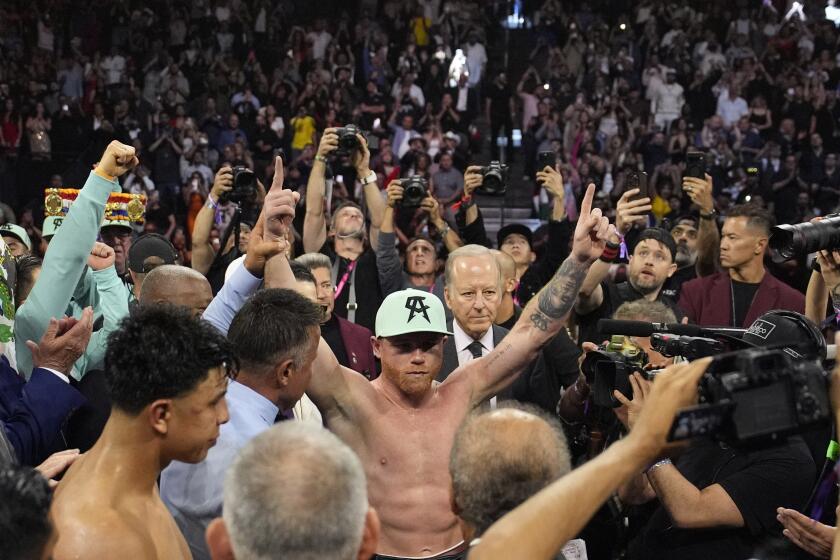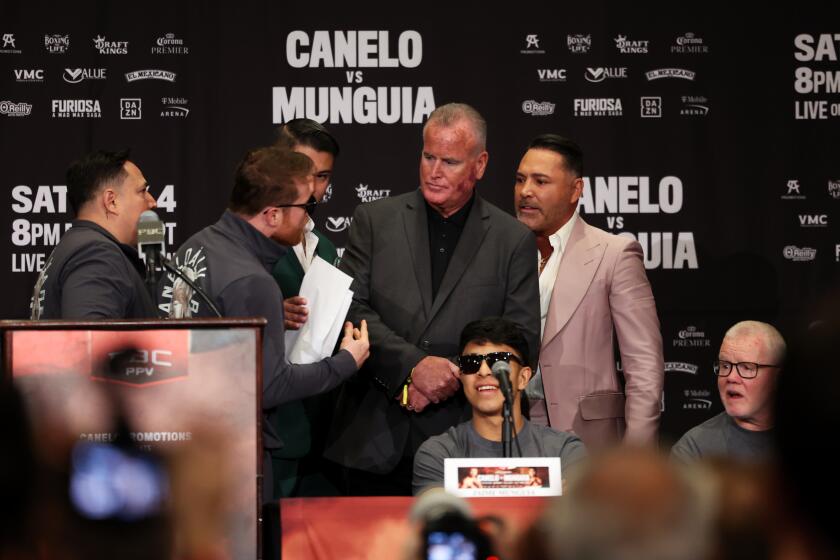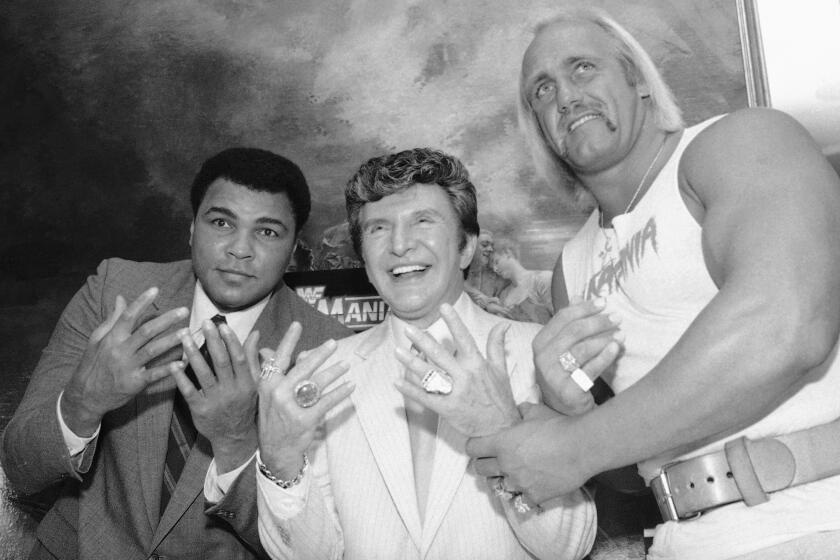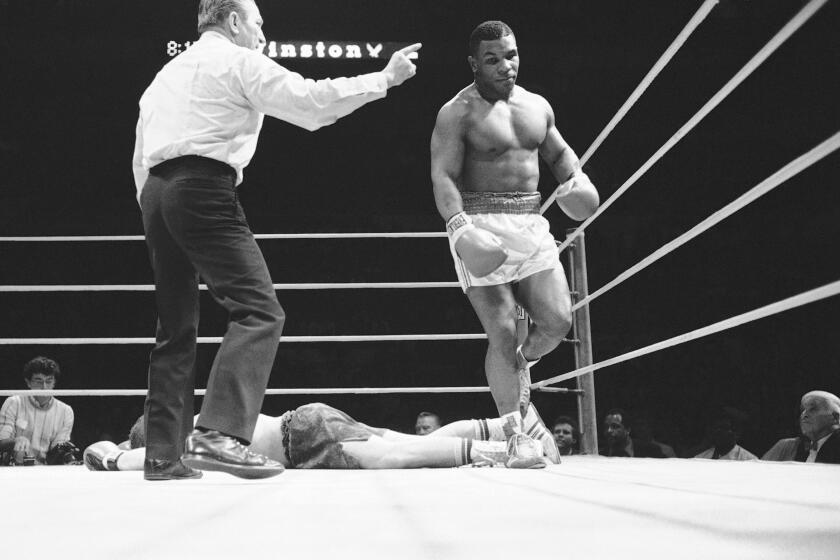A consumer’s guide to the best and worst of sports media and merchandise. Ground rules: If it can be read, played, heard, observed, worn, viewed, dialed or downloaded, it’s in play here.
What: “Golden Boy--The Fame, Money and Mystery of Oscar De La Hoya” by Tim Kawakami (Andrews McMeel, $19.95)
There’s no disputing that Oscar De La Hoya is the brightest star in boxing. Oh, he may not be the best fighter. That distinction arguably belongs to light-heavyweight champion Roy Jones Jr.
De La Hoya, though, is the Golden Boy, a nickname given him after he became the only American boxer to win a gold medal at the 1992 Barcelona Olympics. He certainly has the looks and the charisma. Add his considerable talent and you have a very marketable product.
Last year De La Hoya, the World Boxing Council’s welterweight champion, earned $35 million. In 1997 he made $37 million. Heavyweight champion Evander Holyfield and Michael Jordan were the only athletes who earned more. Not bad for a 25-year-old who grew up in a lower-middle-class family in East Los Angeles and was pushed into boxing at 6 by his father, Joel, a former fighter.
De La Hoya boxed to earn his father’s approval, which to this day he believes he has never received. He tells Tim Kawakami, The Times’ boxing writer for four years, “My dad never tells me I did great. He may tell me what I did good, but he’d never say, ‘My son did great.’ He thinks my head would swell.”
How big is De La Hoya? Well, his 1995 fights in Las Vegas against Los Angeles rivals Rafael Ruelas, whom he knocked out in the second round to win the International Boxing Federation lightweight title, and Genaro Hernandez, whom he stopped in six rounds to retain the World Boxing Organization lightweight crown, grossed more than $20 million.
Kawakami also tells the story of Shelly Finkel, a successful New York talent agent who had guided 1984 Olympic stars Holyfield and Pernell Whitaker into their pro careers. Finkel was introduced to the De La Hoyas by Al Stankie, one of Oscar’s early trainers.
Finkel, realizing that Oscar had the talent to become a star, befriended the family and often gave Joel money for expenses. In all, he gave them close to $100,000, much of it to pay for cancer treatment for Oscar’s mother, Cecilia. When she died in 1990, Finkel paid for her funeral. He also paid the way for 20 of De La Hoya’s friends to the Olympics.
Finkel, of course, thought he had the inside track to become Oscar’s manager when the young fighter turned pro. Instead, Joel signed with Robert Mittleman and Steve Nelson, agents who didn’t have Finkel’s track record but offered a deal worth about a million dollars.
If you’ve ever wondered what goes on behind the scenes in boxing, particularly when it concerns a star such as Oscar De La Hoya, this book is your ringside seat.
More to Read
Get our high school sports newsletter
Prep Rally is devoted to the SoCal high school sports experience, bringing you scores, stories and a behind-the-scenes look at what makes prep sports so popular.
You may occasionally receive promotional content from the Los Angeles Times.
